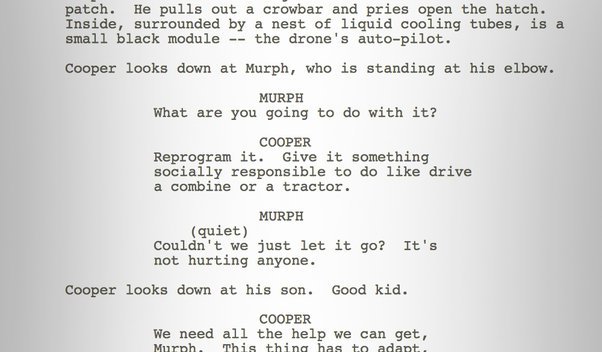Best Film Screenplay Writing Tips
Writing a compelling film screenplay is both an art and a craft. A well-structured screenplay can captivate audiences and serve as the blueprint for a successful film. In this article, we will discuss the best tips for crafting an engaging film screenplay, ensuring that your story shines on the big screen.
Start with a Strong Concept
Before diving into writing your film screenplay, begin with a strong concept. Think about what makes your story unique and engaging. A solid premise provides the foundation for your screenplay and helps you stay focused as you write. Consider the central conflict, the main characters, and the themes you want to explore. By establishing a clear concept, you set yourself up for success.

Develop Compelling Characters
One of the most important aspects of any film screenplay is character development. Audiences connect with relatable and well-rounded characters. Spend time crafting your protagonists and antagonists, giving them distinct personalities, motivations, and arcs. Ensure that your characters face challenges that drive the narrative forward, and allow them to evolve throughout the story. By creating compelling characters, you enhance the emotional impact of your screenplay.
Structure Your Screenplay
A solid structure is crucial for a successful film screenplay. Familiarize yourself with common screenplay structures, such as the three-act structure or the hero’s journey. These frameworks provide a roadmap for your story, helping you organize plot points and character development. Each act should build upon the previous one, leading to a satisfying climax and resolution. By adhering to a structured format, you create a cohesive narrative that engages viewers from start to finish.
Write Visually
Remember that film is a visual medium. When crafting your film screenplay, focus on writing visually compelling scenes. Use descriptive language to paint vivid pictures in the reader’s mind, but avoid excessive detail. Instead, convey essential elements that can be captured on screen. Additionally, be mindful of pacing; short, punchy sentences can create tension, while longer passages may establish a more relaxed rhythm. Striking the right balance keeps your screenplay dynamic and engaging.
Show, Don’t Tell
One of the golden rules of writing a film screenplay is to show rather than tell. Instead of relying on exposition to convey information, use actions and dialogue to reveal character motivations and emotions. This approach allows viewers to infer meaning, making for a more immersive experience. By showing rather than telling, you create a richer narrative that encourages audience engagement.
Revise and Edit
The first draft of your film screenplay is just the beginning. After completing your initial draft, take a break before revising. This distance helps you view your work with fresh eyes. Focus on clarity, coherence, and pacing as you edit. Seek feedback from trusted peers or writing groups, as their perspectives can offer valuable insights. Remember, great screenplays often result from multiple rounds of revision, so be open to refining your work.
Study Successful Screenplays
To enhance your skills in writing a film screenplay, study successful screenplays. Analyze films you admire and read their screenplays to understand structure, character development, and dialogue. Pay attention to how other writers tackle similar themes or genres. By learning from the masters, you can incorporate effective techniques into your own writing process.
Stay Persistent
Finally, persistence is key when writing a film screenplay. The journey from concept to completion can be challenging, and rejection is often part of the process. Stay committed to your vision, and continue honing your craft. Attend workshops, participate in writing challenges, and network with other writers. Your dedication will pay off as you refine your skills and develop your unique voice.
Conclusion
In conclusion, crafting a successful film screenplay requires a blend of creativity, structure, and perseverance. By starting with a strong concept, developing compelling characters, and writing visually, you can create a screenplay that captivates audiences. Embrace the revision process and learn from others, as this will strengthen your writing abilities. With dedication and practice, you can turn your ideas into a remarkable film screenplay that stands out in the world of cinema.



